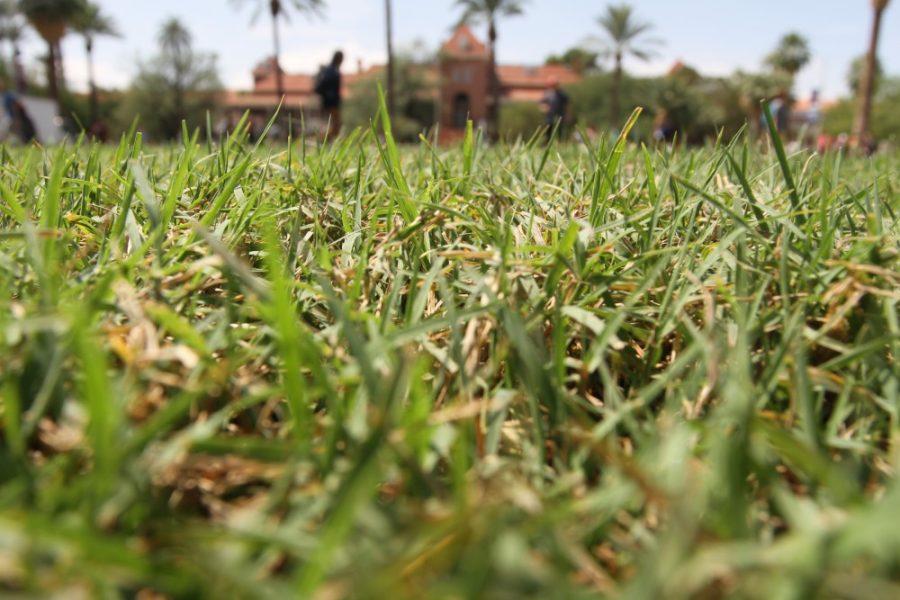If it wasn’t green enough already, the grass on the UA Mall will now be grown using organic fertilizers with the help of a local company.
In an effort to keep the Mall’s grass growing while minimizing environmental impact, UA Facilities Management, in collaboration with Tucson-based Merlin Organics, will begin treating the grass with natural fertilizer. According to Christopher Kopach, the assistant vice president for Facilities Management, Merlin Organics contacted Facilities Management a year and a half ago with a proposal to switch fertilizers over to organic alternatives.
Following a successful trial period on the grass in front of Bear Down Gymnasium, Facilities Management contracted Merlin Organics to use organic fertilizers on the roughly half-mile length of lawn from Old Main to North Campbell Avenue.
Unlike traditional chemical fertilizers, the organic fertilizer is made of a special compost formula called a “compost tea,” mixed with natural additives, according to Troy Hollar, Merlin Organics’ chief operating officer.
The new natural fertilizer is not only healthier for grass than its chemical couterparts, it’s also more water-efficient, according to Kopach.
“We’re seeing more root growth from the new fertilizers, and that means more roots absorbing more water more efficiently,” Kopach said.
Hollar added that the use of compost tea has decreased water use on the Mall by five percent in the first six months of the program. His company had set a goal for the reduction of water, but since that goal was already met within the first six months, the company has set a new goal of a 10-percent reduction after the first year.
Hollar also said that the five-percent decrease in water use has already saved tens of thousands of dollars for the UA.
He added that because natural materials are used to make the compost, it costs less to produce than conventional fertilizers.
Hollar also stressed the reduced fossil fuel consumption from using organics. Fossil fuels are the largest component of traditional fertilizers and pesticides, whereas compost tea uses no fossil fuels.
Members from Students for Sustainability, a club that focuses on campus sustainability efforts, said they are also pleased with the program, saying that Facilities Management is strengthening the UA’s reputation as a sustainable institution.
“The university is doing a lot of good things for sustainability,” said Taryn Contento, director of the club’s UA Community Garden project. “I think that the University of Arizona is an institution that people in Tucson look up to. This is a good way to teach people about sustainability, and a really good step in the right direction.”








